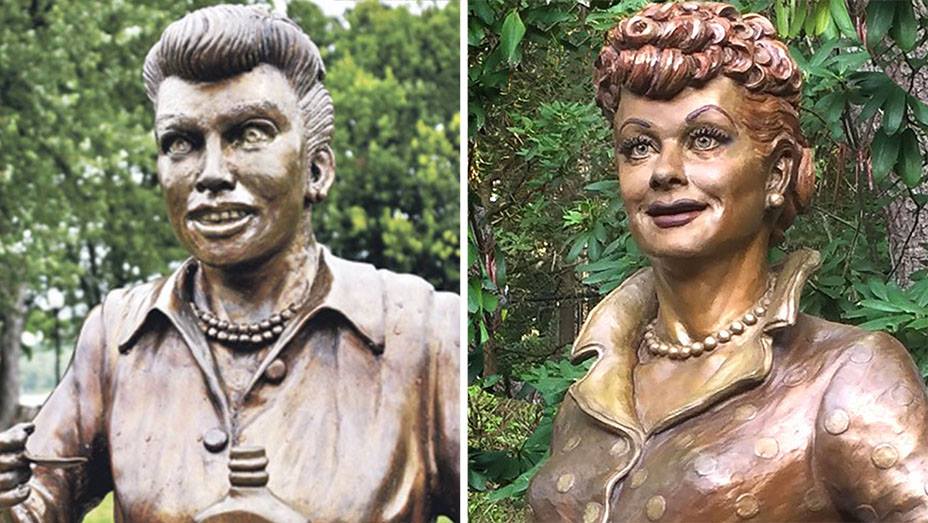
The people of Celoron, New York, celebrated this weekend and with just cause: a loathed and terrifying sculpture of beloved 1940s TV star Lucille Ball has been finally taken down and replaced with what can only be described as a more fitting likeness on what would have been her 105th birthday.
“Scary Lucy” went on view at the Lucille Ball Memorial Park in 2009, and was met with immediate scorn from both fans of the show I Love Lucy and locals who had to view the work on a daily basis. Celoron, as it happens, is the late actor’s hometown.
Artist Dave Poulin, creator of the original statue, admitted to the Guardian that he received death threats after the bronze effigy went on view.
Fans and locals also set up a (now deleted) Facebook group called “We Love Lucy! Get Rid of this Statue,” and comparisons were made to the snake from the Tim Burton movie Beetlejuice (1988) and a character from AMC’s The Walking Dead.
Lucille Ball circa 1955. Photo Getty Images.
Poulin admitted that the sculpture was one of his most “unsettling works” and offered to create a replacement. His offer, however, was rejected.
Upon its unveiling this past weekend, the new sculpture was received with rapturous cheers of “we love Lucy” from the watching crowd.
“Well, it’s been quite a ride,” Celoron Mayor Scott Schrecengost said at the unveiling. “A little over a year ago, we got beat up pretty good,” he admitted.
Following the reaction to “Scary Lucy,” Schrecengost was inundated with offers to re-do the statue. In the end, the task landed on Carolyn Palmer, a sculptor who specializes in lifelike, bronze sculptures of famous figures.
“I not only wanted to portray the playful, animated, and spontaneous Lucy, but also the glamorous Hollywood icon,” Palmer said in a statement.
Palmer has created well-received likenesses of the likes of Pope Francis and Thomas Jefferson in the past, according to her website.